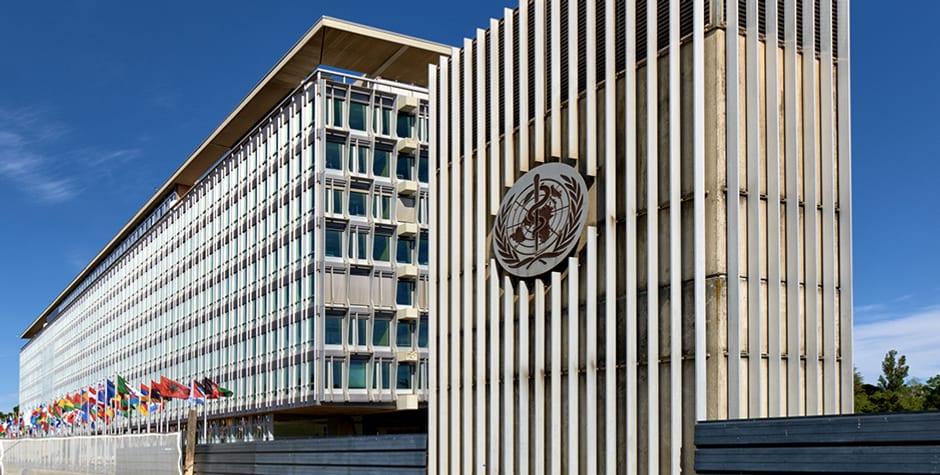The Proposed WHO “Zero Draft” Harms American Sovereignty, Swindles American Taxpayers, and Helps the Chinese Communist Party
From May 21–30, 2023, at the 76th World Health Assembly (WHA) in Geneva, Switzerland, the Biden Administration will once again attempt to cede American sovereignty to a supranational health authority. The COVID-19 pandemic is once more being weaponized to undermine our constitutional rights and national sovereignty.
The Biden Administration’s proposed amendments to the International Health Regulations (IHR) failed at the 75th WHA in May 2022. Several countries criticized the previous rushed attempt to make significant changes to the IHR, offered under the guise of promoting a coordinated response to the international spread of disease. Because of the expressed concerns of member states, the amendments were never considered, although the WHA did adopt an amendment shortening the period during which countries could implement and object to any future changes to the IHR.
However, the failure of the proposed amendments at last year’s WHA represents only a temporary pause in the effort to overhaul the World Health Organization’s (WHO) fundamental powers and authorities. Continued work to refine and build consensus on changes to the IHR has taken place over the course of the last year. These proposals remain imminent, debilitating threats to American rights and liberties. The ACLJ and its sister organization, ACLJ Action, have continued to monitor the WHO’s attempts to obtain arbitrary and sweeping powers that would significantly harm the American public.
The proposed amendments, collectively known as the “zero draft,” would sacrifice American sovereignty while empowering ineffective international bureaucrats at the WHO. While Article 4 of the new “zero draft” appears to acknowledge the importance of sovereignty, it also provides the significant caveat that sovereignty will be recognized “provided that activities within [states’] jurisdiction or control do not cause damage to their peoples and other countries.” The term “damage” here is left significantly ambiguous, allowing for as broad of an interpretation as possible to justify the need for continuous international intervention, undermining the very sovereignty it purports to uphold. For example, the WHO regards access to abortion as important for the well-being of women and girls, creating an opportunity to infringe on the United States’ sovereignty on the basis of the “damage” caused by pro-life policies across the nation.
Beyond harming American sovereignty, the “zero draft” would give the WHO powerful and questionable new authorities funded by American taxpayers. Despite the United States providing significant funding already to the WHO, the WHO’s authority to declare a pandemic would be expanded, triggering other obligations for treaty parties during a pandemic. This would include “real-time access by WHO to 20% of the production of safe, efficacious, and effective pandemic-related products,” with half donated and the other half sold at affordable prices. The treaty would also obligate another commitment of “not lower than 5% of [a state’s] current health expenditure” to implement the agreement. Upholding the obligations of this treaty will likely cost the United States and the American taxpayer anywhere from tens to hundreds of billions of dollars even as our national debt climbs unsustainably higher.
Furthermore, the draft language as written appears to benefit malign actors in the global health system, especially China. At best, the WHO has failed to hold China accountable for its responsibility for the 2020 pandemic; at worst, the WHO continues to function as a pawn of the Chinese Communist Party (CCP) by advancing China’s interests across the world. The “zero draft” ignores relevant gaps and concerns in current international health policy and pandemic preparedness by failing to confront China or call for a thorough investigation of COVID-19’s origins. Furthermore, the treaty would classify China as a “developing country,” allowing them to benefit from the transfer of technology, intellectual property, and expertise other treaty parties are required to share. This “developing country” status will only further supplement and provide legal justification for China’s already prolific IP theft.
Finally, the WHO’s treaty calls on parties to crack down on free speech under the pretext of “tackl[ing] false, misleading, misinformation or disinformation.” This is likely a justification for future censorship in China’s favor, given the WHO’s continuous misinformation in covering up China’s role in COVID-19 origins and open advocacy for China’s generally harmful, ineffective, and extreme lockdown measures across the world.
In short, American citizens are rightfully concerned that the “zero draft” poses serious problems to the United States’ sovereignty, unnecessarily empowers the WHO, and primarily benefits our main geostrategic adversary, China. The Senate should absolutely oppose this treaty in its current form. Indeed, any attempt by the Biden Administration to circumvent the Senate’s required two-thirds approval should be met with strong resistance, including Congress exercising its power of the purse to deny appropriations to the WHO or other government functions implementing the treaty.
Fortunately, Congress has realized the problematic nature of this treaty and offered solutions to protect America’s sovereignty. Sen. Ron Johnson (WI) introduced the “No WHO Pandemic Preparedness Treaty Without Senate Approval Act” to require that any resulting WHO convention or agreement be deemed a treaty, requiring the advice and consent of a Senate supermajority. Sen. Johnson’s legislation would increase WHO agreement transparency and prevent the Biden Administration from circumventing the Constitution. Congress must assert its constitutional authority to force the Biden Administration to act only in accordance with the national interests of the United States and its citizens.
All in all, this treaty would cede authority to an unaccountable and incompetent international bureaucracy; it is a dangerous step toward international intrusion on American sovereignty. Our leaders must recognize the serious and problematic nature of this agreement before it is too late to prevent the WHO from gaining additional authority and harming the American public.
